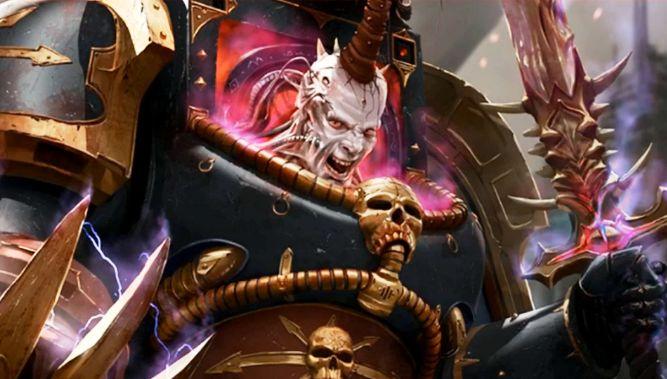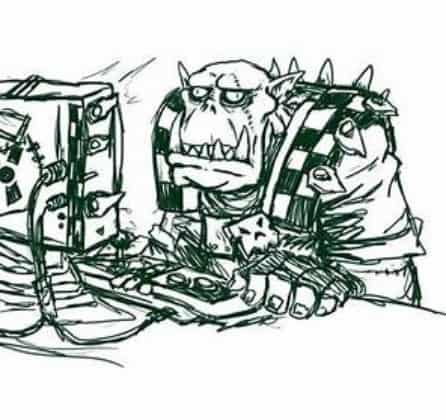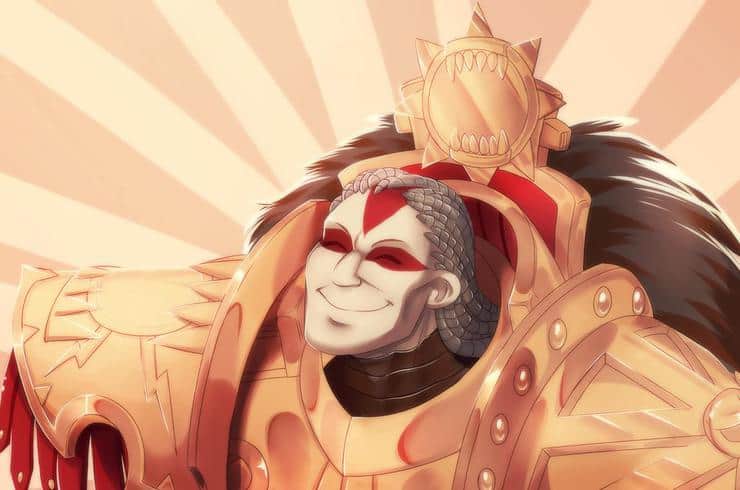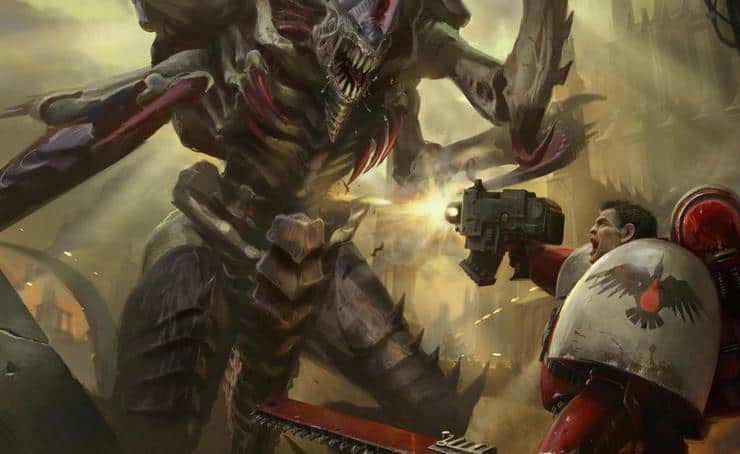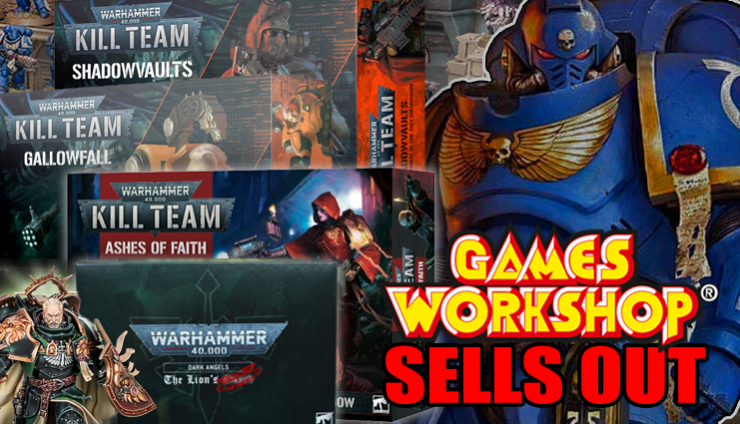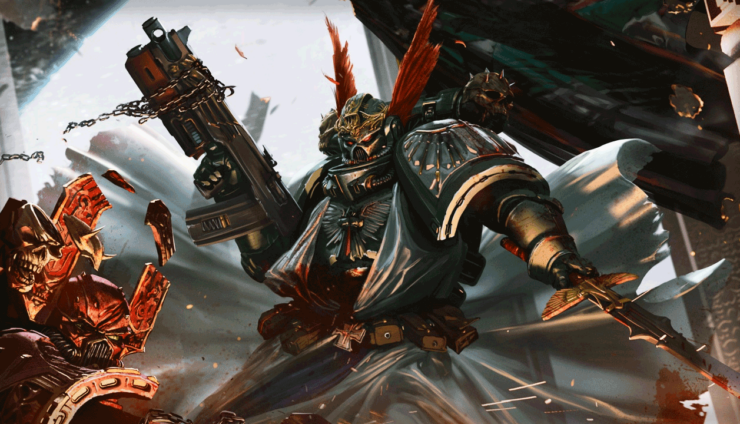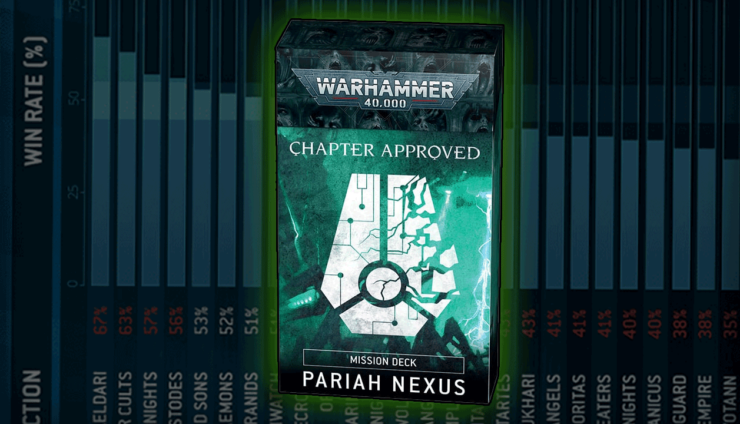Is everything you know about competitive Warhammer events a lie? No matter what kind of player you are, this one may hit you right in the feels!
Jstove is back with another piece of his mind. Let’s check out what he has to say about 40k and the solely competitive culture the game is heading towards.
It’s the JStove and today I’m not talking about Chaos. It’s a miracle. Instead, the week after the Bay Area Open, I’m talking about competitive play, and why you should be doing it. Want to have more fun, enjoy every aspect of the hobby more, and run into less hyper-competitive jerks in your hobby?
I’ll tell you how, and the answer might surprise you.
Dr. StrangeWaaagh: How Competitive Play Casualized My 40k
The worst 40k experience I ever had was in a Saturday shop game. The best one was playing ITC.
Forget everything you think you know about the 40k competitive scene and all the reasons you don’t want to be in it. The horror stories simply don’t add up. I have been in the hobby for more than 15 years. Trust me when I say that I can tell you conclusively, that all my worst experiences playing 40k have been in “casual” environments. They were only supposed to be “for fun”. Meanwhile, my best experiences were playing with a “competitive” tournament packet.
In my experience, I’ve always been more likely to run into goofball shenanigans and half-baked power gamers at a Saturday table than I have been with an ITC packet.
Here’s the list of everything that’s wrong with Saturday 40k, the format that’s supposed to “protect” you from “having a bad time.”
Lack of Real Estate Development
Most 40k out-of-the-book scenarios make a very weak attempt at scoring objectives and table control. This means that in casual 40k, it’s almost always better to just shoot your enemy off the table as fast as possible. You gain almost nothing from table control. Your opponent can’t contest you if he’s dead.
Wacky Randumb “Casual” 40k Events
Recent and current iterations of the 40k mission pack rely on scoring cards and other random table generators to make the game asymmetrical. Asymmetrical scoring by itself isn’t a problem, as long as it’s fair to both players. And they have equal access to choice (or lack of choice) in how they generate their scoring. However, when too much random is injected to a game that’s already pretty random, you start coming up with goofball shenanigans and off-the-cuff wombo combos that end games in obscure ways.
I once watched a friend end a game on turn 2 because his Tau Commander was able to rocket jump onto an empty backfield objective, allowing him to instantly win the game under the scenario’s wacky, poorly thought-out victory conditions. Making everyone buy a $15 pack of cards and then having them draw CAAAARAZZZY scoring conditions might add more variety to the game, but it can add a lot of stupidity as well if you don’t use it carefully.
The First Rule of Casual 40k: There Are No Rules
One of the things that players need to remember is that all the rules designed to fix GIANT GAPING HOLES in the rules and in the meta of 40k don’t apply to Open and Narrative play. Rules designed to make everyone enjoy the game and give them a fair shot at playing like the anti-spam Rule-of-three and other rules regarding stratagems, advanced deployments, and how reserves behave DO NOT APPLY outside of Matched Play. That means that the more casual your experience is, the more open it is to abuse.
One day, my buddy came over with the printout of an ITC packet. He said, “I’m playing an ITC tournament at the next convention, I need to practice, let’s play this way.” We never stopped playing ITC after that, even at home.
ITC Scoring Covers all Bases
In casual 40k, your goal is to blow your opponent off the table as fast as possible so that you don’t have to play the game or trip over random scoring conditions from your WAAAAACKY FUUUUN deck of cards. In ITC, your goal is to actually play the game. It actually helps to play it as long as possible. In ITC, you have access to asymmetrical scoring conditions that you pick. You are scored turn by turn, not at the end of the game or whenever you use a card. Controlling the table is a more important and consistent part of playing the game than just making your opponent put his models back in his bag.
You Are Less Likely to Get Run Over in One Turn in ITC Play
Because scoring is progressive and counted every turn in ITC, the goal becomes to play as much of the game as possible. Because you and your opponent actually have to grab objectives and hold them. And you want to be able to consistently kill an enemy unit every turn. ITC lists tend to be more focused on “capture and hold” and actually playing the game than just simply blowing you off the table as soon as possible. In top tier competitive gameplay, letting your opponent’s units live so you can kill them later is a benchmark strategy. At every turn, competitive rules are designed to make you turtle and alpha strike less.
You are Less Likely to Run Into a Toxic Power Gamer in Competitive Play
Let’s dispel one myth about competitive play that is totally false. That competitive play attracts crappy people. Allow me to drop some truth on you from over 15 years in the hobby. The sneaky jerk in the back of the shop that writes power gaming lists and wants to stomp you in your rookie game isn’t competitive. He’s a parasite. He only wants cheap wins to feel big. And he’d never actually show his face at a competition where he might find an opponent that’s on his level.
It’s not hard to be a ringer at Saturday Casual 40k. Because Saturday Casual 40k has weak, random rules and doesn’t have any of the restrictions that curb abusive list writing. The parasite player usually goes to one or two events in his 40k career. He sees that there is a rule set and a player group there that is on the same level and then leaves and never comes back. Only because he’s not the biggest fish in the pond.
You Are More Likely to Run Into Fun People at Competitive Play
Most competitive tournament players drink professionally while playing 40k at an amateur level. I have been playing 40k for 15+ years and spectating, and covering convention tournaments for Spikey Bits. I have never seen a competitive 40k game between two adults that did not involve alcohol or vapes. There is a false myth in competitive 40k that you will walk in and immediately get your face kicked off the table by a nationally ranked top tier player. While that might actually happen to you once in the first round, the cream will rise to the top of the competition.
Then, the rest of your weekend will be progressively more beer and pretzel. As the tournament drags on and the scores come out, the Top 8 tables will filter into their own super competitive mode. Meanwhile, the rank-and-file loser’s bracket games get more casual and more fun focused. Round 2 and Round 3 loser’s bracket tournament 40k is the most fun 40k you will ever watch or play.
Pay at The Door Keeps The Riff-Raff Out
The number one deterrent to scumbag 40k players in competitive play is tournament registration fees. They are the best filter to keeping bad seeds out of your social environment. The bigger the tournament is, and the more players it draws from around the country, the more money those players will spend.
Nobody who spends hundreds of dollars to drive or fly their toy soldiers halfway across the country wants to be a [REDACTED]. Or even play against a [REDACTED]. The truth of parasite players is that they don’t spend money to fight opponents that are on an equal footing. They’d rather take an abusive cheap win on a new player in their tiny little kingdom of crap.
They don’t want to grow their game and pay to expand their pool of competition to opponents on their level.
